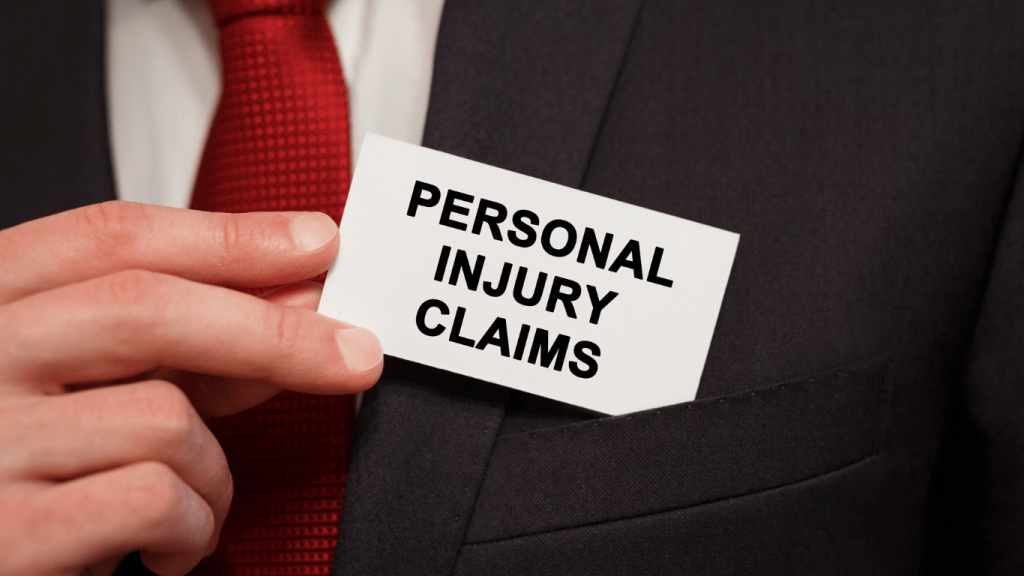Introduction
Personal injury claims are of utmost importance, as they can have a profound impact on the lives of the claimants. When individuals suffer injuries due to someone else’s negligence, these claims serve as a means to seek justice and compensation. Personal injury claims aim to address the financial and emotional burdens caused by incidents. This includes medical expenses, lost wages, pain and suffering, and emotional distress. By pursuing these claims, individuals can hold the responsible party accountable. Also, they can regain a sense of security and support during their recovery process.
Personal injury claims have the potential to bring justice and compensation. However, it’s important to acknowledge that not all cases end favorably. Despite valid claims and substantial evidence, certain personal injury claims fail to achieve the desired outcome in court. This reality highlights the complexity of the legal system and the various factors that can impact the result. It is crucial for claimants to understand the potential challenges and pitfalls they may encounter throughout the legal process.
Understanding the reasons behind the failure of personal injury claims in court is essential for claimants and their legal representatives. Lack of sufficient evidence stands as a primary cause where claimants struggle to present compelling proof to support their case. Another common reason is the failure to establish liability. Another reason is facing difficulties in proving the negligence or fault of the opposing party. Additionally, preexisting conditions or contributory negligence can weaken the claim. Inadequate legal representation or procedural errors may also hinder the claim’s success. By being aware of these key reasons, claimants can take necessary precautions and address potential weaknesses to strengthen their case.
In this blog, we will discuss the top reasons involved in the personal injury claim failure in court. We will also be telling you how legal professionals can file claims in court efficiently. This will ensure the best interests of their clients.
Top Reasons Why Personal Injury Claims Fail in Court
- Lack of Sufficient Evidence
Strong evidence is vital for a successful personal injury claim, as it substantiates the claimant’s assertions and validates their case. Convincing evidence, like medical records, accident reports, and photographic proof, helps establish liability and demonstrate the extent of damages suffered. It also helps to bolster the claimant’s credibility and increase the likelihood of a favorable outcome in court.
Claimants often fail to gather and present enough evidence, weakening their personal injury case. Instances include inadequate documentation of injuries, failure to obtain witness statements, or neglecting to collect important supporting documents. Insufficient evidence can hinder the claim’s credibility and make it challenging to prove liability. It can also create an obstruction in establishing the link between the accident and the injuries sustained. This could ultimately diminish the chances of a successful claim.
Documentation, witness testimonies, and expert opinions play a crucial role in strengthening a personal injury claim. Comprehensive documentation, such as medical records, accident reports, and financial records, provides a factual foundation for the claim. Witness testimonies, particularly from individuals who directly observed the incident, can corroborate the claimant’s version of events. Expert opinions lend credibility and support the claimant’s case by providing professional analysis and insights. These elements collectively enhance the claim’s strength and increase the chances of a favorable outcome.
- Failure to Establish Liability
Claimants usually face challenges when attempting to establish liability or prove the fault of the opposing party in personal injury cases. Situations arise where there is a lack of clear evidence linking the defendant’s actions to the injuries suffered. Additionally, issues such as shared responsibility or contributory negligence can complicate the process. This makes it difficult for claimants to demonstrate that the opposing party is solely at fault for the injuries sustained.
Proving negligence, duty of care, and causation presents significant challenges in personal injury cases. Claimants must demonstrate that the defendant owed them a duty of care, which the defendant breached through negligent actions. Furthermore, establishing a direct link between the defendant’s negligence and the injuries suffered is crucial for successful claims. However, causation can be complex to prove, especially in cases where multiple factors contribute to the injuries. Overcoming these challenges requires meticulous gathering of evidence, expert testimonies, and skilled legal representation.
- Contributory Negligence
Preexisting medical conditions or contributory negligence can significantly weaken a personal injury claim. Defendants often argue that the claimant’s injuries were not solely caused by the incident in question. It was rather a result of preexisting conditions or the claimant’s own negligence. These arguments aim to diminish the defendant’s liability and reduce the potential compensation awarded to the claimant.
Claimants can address these challenges and present their cases effectively by taking proactive measures. They should ensure comprehensive medical documentation that clearly outlines the preexisting condition. It also establishes the link between the incident and the exacerbation of injuries. Claimants should gather testimonies, expert opinions, and other evidence that supports their version of events and counters the defendant’s arguments. Skilled legal representation is essential to navigate the complexities, build a strong case, and effectively rebut the defendant’s claims.
- Inadequate Legal Representation
Hiring a skilled and experienced personal injury attorney is important in maximizing the chances of success in your case. A knowledgeable attorney possesses a deep understanding of personal injury laws, legal procedures, and strategies to build a strong case. They can navigate complex legal processes, negotiate with insurance companies, and gather evidence effectively. Attorneys also advocate for your rights, ensuring you receive fair compensation for your injuries and losses.
Inadequate legal representation can have detrimental effects on a personal injury case. Without proper expertise, mistakes can occur during the legal process, such as filing documents, meeting deadlines, or presenting evidence. Additionally, a lack of experience may lead to missed opportunities for negotiation or settlement, diminishing the potential for optimal compensation. To avoid such pitfalls, it is essential to engage a competent personal injury attorney. They can skillfully handle your case and protect your interests.
Statute of Limitations and Procedural Errors
Failing to meet the statute of limitations can lead to the dismissal of a personal injury claim. Statutes of limitations set strict time limits within which a claim must be filed. Claimants should also be aware of the statute of limitations [context: how long you have to file a personal injury claim in Indiana], as failing to meet this critical deadline could result in dismissal, regardless of the strength of evidence or liability. Understanding and adhering to these legal timelines are fundamental to preserving a claim’s validity.
If the claimant exceeds this timeframe, the court may refuse to hear the case, barring any chance of compensation. It is crucial to understand and adhere to the specific statute of limitations applicable to your claim to preserve your legal rights.
Common procedural errors can significantly hamper a personal injury claim’s chances of success. These errors include filing incomplete or inaccurate paperwork, missing crucial deadlines, or failing to follow court procedures. Such mistakes can delay or derail the legal process. It can also weaken the claimant’s position, or even result in the dismissal of the claim. It is essential to be diligent, detail-oriented, and seek legal guidance to navigate the procedural aspects effectively.
To avoid these mistakes and ensure compliance with legal requirements, it is crucial to be proactive and seek professional guidance. Familiarize yourself with the specific procedural rules and timelines governing your personal injury claim. Consult an experienced attorney who can provide comprehensive guidance, assistance with paperwork and documentation, and help meet all necessary deadlines. By understanding the legal process, staying organized, and seeking appropriate legal representation, you can minimize the risk of procedural errors. Also, you can maximize the chances of a successful personal injury claim.
Insufficient Damages or Overreaching Claims
Inadequate damages claimed by the plaintiff can undermine the seriousness of their personal injury case. Inaccurate damages may raise doubts about the claim’s credibility and severity. It is crucial for plaintiffs to assess and claim appropriate damages accurately. This helps in presenting a compelling case that reflects the true impact of the incident.
Overreaching or exaggerating the damages sought in a personal injury claim can have serious consequences. If the claimed damages appear inflated or unjustified, it can damage the plaintiff’s credibility and weaken the overall case. Insurance companies and defense attorneys may challenge the legitimacy of the claim. This makes it more difficult to negotiate a fair settlement or obtain a favorable court judgment. It is important to present a truthful and reasonable estimation of damages to ensure a strong and credible claim.
Properly assessing damages and setting realistic expectations is essential to personal injury claims. Consulting experts help accurately assess the impact of injuries on physical, emotional, and financial aspects. Plaintiffs should maintain detailed records of medical expenses, lost wages, and other tangible losses. Seek an experienced personal injury attorney for guidance on reasonable compensation expectations from comparable cases. By approaching damages assessment with diligence and realism, claimants can present a stronger case. Also, they can improve their chances of receiving fair compensation.
Conclusion:
Thorough preparation, strong evidence, and effective legal representation are vital components for a successful personal injury claim. Thorough preparation involves a meticulous gathering of relevant documents, such as medical records, witness testimonies, and accident reports. It is crucial to present compelling evidence that clearly establishes liability and showcases the extent of damages suffered. Competent attorneys can navigate the legal complexities, offer strategic guidance, and advocate effectively on behalf of the claimant. By prioritizing these elements, claimants can enhance their chances of achieving a favorable outcome in their personal injury case.

